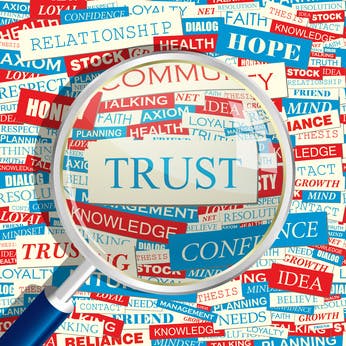First of two parts
If you have never read George Orwell’s book 1984, you need to – or if you have read it, go back and read it again (I did recently).
Considering it was published in 1949, it is unbelievable how much his concept of “Big Brother” and the use of technology to track people parallels the reality of our world today.
While Orwell’s imagination was remarkable, even he could not have predicted the dizzying number of ways that people are tracked and observed today.
Big Brother at work?
Think about it: every time you leave your house there are pervasive satellites and video cameras capable of capturing your every move. Your phone has GPS tracking capability to know exactly where you are on the planet at any point in time, and new wearables like Fitbit can get to the granular level of understanding how many steps you took, how well you slept last night, and your heart rate at this exact moment.
And even when you get to the perceived safety of your home – your castle – you are still constantly producing data points that can be pinched and used by anyone with the technical chops to do so. Every phone conversation, every credit card swipe, every website visited, well, if someone wanted to, they could create an incredibly accurate profile of who you are and the life you lead.
So the big question is, will the use of all this technology lead to paranoia or productivity? Will it enable us to trust people more (based on the fact that we have access to all of this data), or will we see it result in heightened suspicion and skepticism?
Trust at work
Before we answer that, let’s acknowledge another growing trend that has potential to significantly impact the concept of trust – the gig economy.
Organizations like Airbnb and BlaBlaCar have enabled people to “temporarily rent out” the use of their own homes and cars to complete strangers. The concept behind Airbnb (which was recently valued at over $25 billion) is particularly compelling. We are letting people in to our most private sanctuary, and trusting that they will not do harm to ourselves or our property.
In reality, capitalism is based on the trust that through the exchange of money, goods and services — I will meet whatever obligation I have agreed to, and do so in compliance with the law. I personally believe that the use of technology can improve trust between people, especially in the workplace.
It is quite simple really. Think about the relationship between an employee and their manager.
A significant amount of a manager’s time is spent tracking compliance-related data. Is their employee showing up on time, complying with their assigned schedule, completing training courses, adhering to company policies, etc? What if we could stop being “helicopter managers” and never had to worry about any of those things? (because technology is tracking them for us)
Digital bosses
The concept of “Digital Bosses” is not nearly as far off in the future as you think. We already have various systems (time/attendance, scheduling, learning management, HRIS platforms, etc) that can track and report out virtually any and all compliance-related data.
If this data can be aggregated and provided to managers in a way that can be intuitively consumed (with prescriptive suggestions about what to do with the information), that gives those managers more of the most valuable commodity in the world: time.
And lest this sound like a big “thumbs-up” for the Big-Brother-like policies from Orwell’s book, note this fascinating statistic from the Brandon Hall Group’s 2015/2016 study on workforce measurement and statistics: when asked about their top concern regarding people data, respondents listed “the dehumanization of the workplace” third highest.
“Honestly, I almost didn’t put that in as an option,” says Cliff Stevenson, Principal Analyst and author of the survey, “I thought maybe that was something only I was worried about.”
Getting to know people better
Although employee data security took the top spot, employee privacy and dehumanization are obviously worrying people – and not just the frontline employees, but the managers who are worried that their employee are being reduced to numbers instead of really connecting with them, which is why that time is so important.
Time to spend actually getting to know their direct reports in a way that goes beyond what the data can tell them. To understand each individual at an intimate level, enabling them to interact in more meaningful and personal ways.
By getting to know their people better, they have an opportunity to understand the best way to utilize them – which is good for the employee (aligning them with their strengths and preferences) and good for the organization (enhanced engagement and productivity leading to better results).
